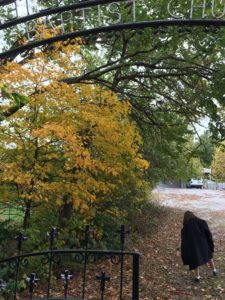 My oldest daughter confessed she wanted to study writing in college. I say confess because she struggled with feeling guilty, as if she was supposed to choose something better. I had never encouraged her to pursue this path. “But Mom,” she said, “I grew up drawing between the lines of your poems.” And this was true; all four of my children used my drafts as scrap paper to fashion airplanes, to experiment with shape and color, to publish household newspapers.
My oldest daughter confessed she wanted to study writing in college. I say confess because she struggled with feeling guilty, as if she was supposed to choose something better. I had never encouraged her to pursue this path. “But Mom,” she said, “I grew up drawing between the lines of your poems.” And this was true; all four of my children used my drafts as scrap paper to fashion airplanes, to experiment with shape and color, to publish household newspapers.
In the farmhouse where we moved when I was four, my father built one room full of books, floor to ceiling. It was little—you could touch both walls when you stood in the middle—but it seemed a kingdom. I never realized how hard reading was for my father. He marked up his books, underlining, circling, drawing arrows, writing questions or key words in the margins. I know now this was the way for a first-generation American who never read anything but comic books as he was growing up, who wasn’t taught to read or write critically because it wasn’t thought necessary, to engage the text.
My mother, a reading specialist, never read for pleasure, except with children or when she was studying how to help people learn to read. My oldest child, my daughter, read easy as breathing. My second child, my oldest son, didn’t. My mother gave me a crash course in Reading Recovery, a white board with markers, and a jar of alphabet tiles so we could explore language in a way he liked, with his hands. He and I spent hours in the recliner after school, taking turns reading with each other. He turned a corner thanks to a book my mother gave us, the first of the Henry and Mudge series, where he met a child who felt lost sometimes. The other night, as he was struggling to finish To Kill a Mockingbird for his pre-AP English class, I asked, “Would you like me to read a few chapters to you?” To my surprise, he said yes, and he listened, just like before, suddenly all eyes, what seemed a jumble brought clear.
My first two children becoming young adults leads me to look at the second two with even more wonder. My second son, in the seventh grade, just scored a 32 on the science and English portions of the ACT. He wants to be a writer. For him, writing seems an adventure, a puzzle to put together, but I suspect that like his oldest sister, he sees it as a way to change the world. The youngest, almost nine, began reading her older siblings’ books as a way to connect with them. Calvin and Hobbes, Magic Tree House, 39 Clues, Harry Potter, Alex Rider, from these, she designs her own games. But her favorite is any kind of mythology, old stories that try to help us understand the human condition. “Mom,” she asked, “what would you do if Zeus was after you?”
What I wanted for my children was for their world to be better than the one I grew up in. But we aren’t working on eradicating the biases in our systems. We aren’t focusing as a whole on curing diseases or developing new technology that is more conscious of our environment. Instead, our society yearns to regain a glory and a simple time that never existed. We feel so afraid that we try to achieve invulnerability rather than realizing that we all, as mortal creatures, are vulnerable, and that this gives us a common ground from which we might truly see each other and move forward together.
What I have given my children, I hope, is what my parents gave me, a kind of faith they can return to no matter what the world is. That in the beginning, was the word. That little books hold big ideas. That writing has revolutionized the world before, and can again. That literacy brings loving and thoughtful voices into our lives especially when love or thought seems far away. That stories encourage, with the weight of what that means: stories don’t make a problem go away, but they can inspire you for what you must face.
I hope that in time, my children know I tried to change the world for the better for them as best I could, when I worked outside of the house as a teacher, in the choices I made as I raised them, in each piece I wrote. I kept writing and reading to explore, to realize, to defy, and to advocate as I believe we are intended, with love for each other. I took a chance and joined the chorus of voices, in large part because I loved my children. This one word, love, arches over chaos. Love, a simple commandment so hard to keep, is our salvation.
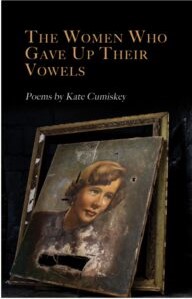
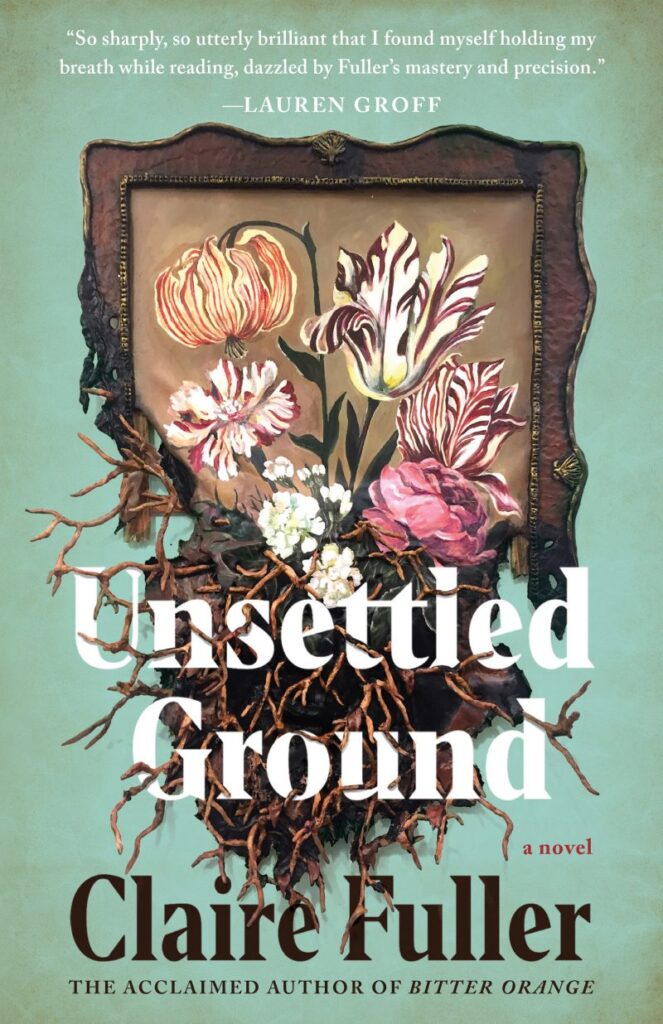


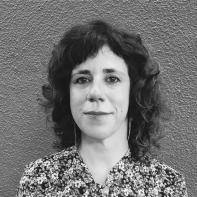

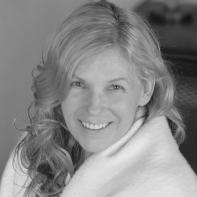 Authors Talk: DJ Lee
Authors Talk: DJ Lee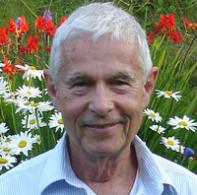 n Clayton as our
n Clayton as our 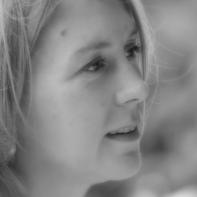 Today we are glad to feature poet Margaret Young as our Authors Talk series contributor. Margaret offers thoughts on her poems, “September Diary, Dreams and Walking” and “Moving On.” She identifies her mother’s absence as well as images and ideas of nature and its non-human elements as recurring characters in both poems. Margaret concludes her talk by discussing the challenge of writing about living family so directly and inviting her father’s poetry into her own work.
Today we are glad to feature poet Margaret Young as our Authors Talk series contributor. Margaret offers thoughts on her poems, “September Diary, Dreams and Walking” and “Moving On.” She identifies her mother’s absence as well as images and ideas of nature and its non-human elements as recurring characters in both poems. Margaret concludes her talk by discussing the challenge of writing about living family so directly and inviting her father’s poetry into her own work. My oldest daughter confessed she wanted to study writing in college. I say confess because she struggled with feeling guilty, as if she was supposed to choose something better. I had never encouraged her to pursue this path. “But Mom,” she said, “I grew up drawing between the lines of your poems.” And this was true; all four of my children used my drafts as scrap paper to fashion airplanes, to experiment with shape and color, to publish household newspapers.
My oldest daughter confessed she wanted to study writing in college. I say confess because she struggled with feeling guilty, as if she was supposed to choose something better. I had never encouraged her to pursue this path. “But Mom,” she said, “I grew up drawing between the lines of your poems.” And this was true; all four of my children used my drafts as scrap paper to fashion airplanes, to experiment with shape and color, to publish household newspapers. Today we are pleased to feature author Ruben Rodriguez as our Authors Talk series contributor. Ruben discusses the three poems which were published in Issue 18 of Superstition Review.
Today we are pleased to feature author Ruben Rodriguez as our Authors Talk series contributor. Ruben discusses the three poems which were published in Issue 18 of Superstition Review.